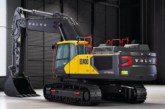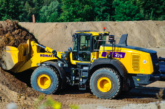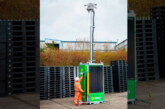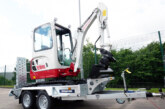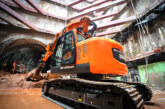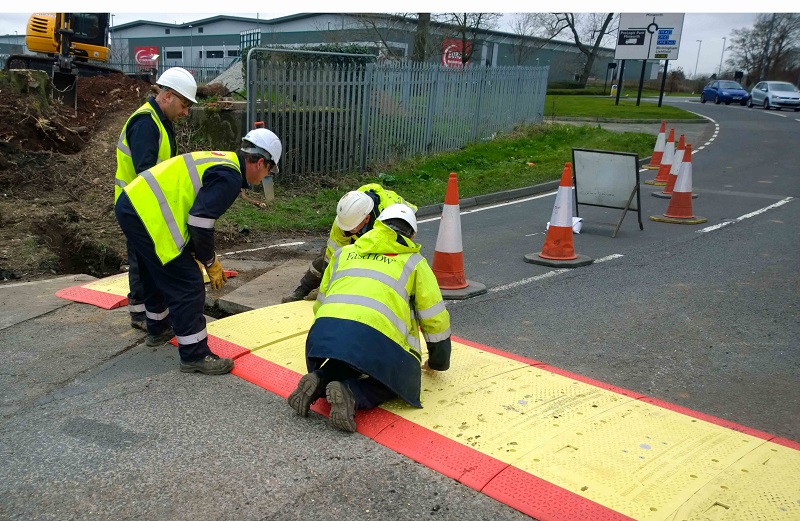
Nick Cowley, country manager of composite technology specialist MCL Group Industries, explains the benefits of composite road plates
The United Kingdom is facing a congestion crisis. In 2013 alone, congestion caused by road closures hit the UK for £4.3bn. In an effort to tackle this, the Department for Transport (DfT) is introducing plans to fine councils and utilities companies £5,000 a day for unmanned roadworks.
According to the recent RAC Report on Motoring, approximately one fifth of motorists hold maintenance of local roads as their top priority for council investment. This is hardly a surprise. As the UK economy begins to enter what seems like a stable recovery after the recession, the volume of traffic on roads is increasing.
However, this creates a vicious cycle. An increased need for road repairs drives more frequent roadworks, which in turn leads to congestion issues that cost the UK economy a large sum of money each year. This amount will increase as the overall economy grows and as councils renovate roads to make way for smart city infrastructure.
 As frustrating as prolonged roadworks may be for drivers, they are equally frustrating for the companies carrying them out. Infrastructure such as steel road plates, for example, require an extensive installation process that can last hours and require heavy lifting equipment to move. Under the new plans, this task alone could cost businesses £7,500 for one and a half days.
As frustrating as prolonged roadworks may be for drivers, they are equally frustrating for the companies carrying them out. Infrastructure such as steel road plates, for example, require an extensive installation process that can last hours and require heavy lifting equipment to move. Under the new plans, this task alone could cost businesses £7,500 for one and a half days.
Yet these fines will only go so far in solving the UK’s congestion crisis. While they are certainly beneficial in incentivising companies to consider how they carry out roadworks, much of the problem arises from how fast it is possible to complete work as opposed to how quickly it is actually done. This is due to the construction materials being used.
Many of the problems can be resolved by using composite materials instead of steel, but poor perception has hindered adoption so far. Traditionally, composites were regarded as costly to manufacture while offering less strength and reliability than steel products.
However, advancements in material technology mean that this is no longer the case. In fact, composites can now offer a competitive edge to civil engineers through reduced manufacturing and installation time, while internal lattice and matrix structures mean products are as strong as steel. By choosing composites with all-weather additives and anti-slip surfaces, they can be even more reliable than steel too.
At MCL Group Industries, we’ve used this technology to enhance the process of fitting road plates, making it both quicker and safer. Our lockable composite road plates are lightweight, deployable without the need for specialist fitting equipment and secured with a Radlock Series 15 locking mechanism. They also have an anti-slip surface design and can bear loads of up to 40 tonnes, earning themselves recommendation from the Transport Research Laboratory (TRL).
The lightweight design of these composite road plates means construction crews can fit them significantly faster than steel products, allowing roads to open sooner during unmanned periods. This serves to not just ease congestion, but also help civil engineers avoid incurring the cost of the DfT’s new fines.
Congestion will always be a problem for the UK as we travel along the road to economic recovery. Composite materials can certainly help in alleviating the strain caused by roadworks, but perceptions of composites must change first.
For more information click here.

